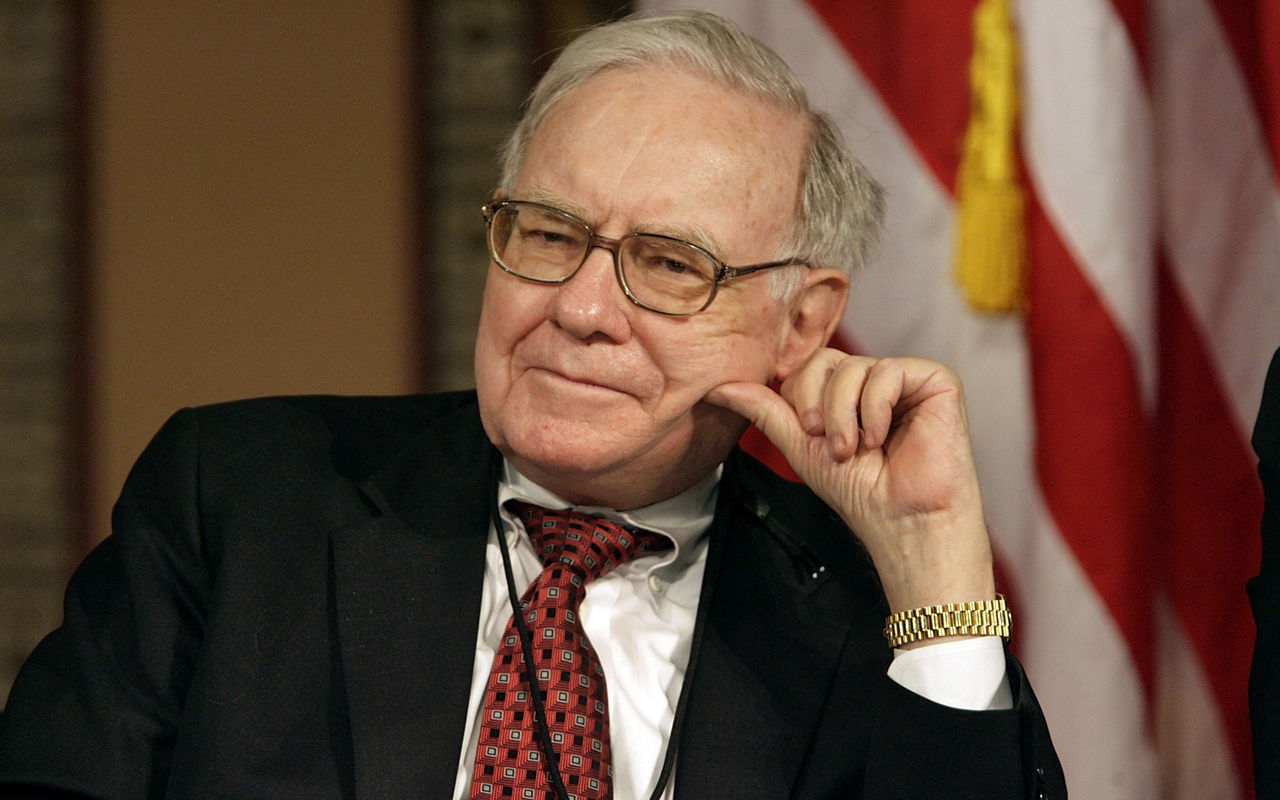Keep Your Investing Simple
Markets are complicated, so we often rationalize that a complicated strategy is necessary to beat them. That logic is faulty.

Profit and prosper with the best of Kiplinger's advice on investing, taxes, retirement, personal finance and much more. Delivered daily. Enter your email in the box and click Sign Me Up.
You are now subscribed
Your newsletter sign-up was successful
Want to add more newsletters?

Delivered daily
Kiplinger Today
Profit and prosper with the best of Kiplinger's advice on investing, taxes, retirement, personal finance and much more delivered daily. Smart money moves start here.

Sent five days a week
Kiplinger A Step Ahead
Get practical help to make better financial decisions in your everyday life, from spending to savings on top deals.

Delivered daily
Kiplinger Closing Bell
Get today's biggest financial and investing headlines delivered to your inbox every day the U.S. stock market is open.

Sent twice a week
Kiplinger Adviser Intel
Financial pros across the country share best practices and fresh tactics to preserve and grow your wealth.

Delivered weekly
Kiplinger Tax Tips
Trim your federal and state tax bills with practical tax-planning and tax-cutting strategies.

Sent twice a week
Kiplinger Retirement Tips
Your twice-a-week guide to planning and enjoying a financially secure and richly rewarding retirement

Sent bimonthly.
Kiplinger Adviser Angle
Insights for advisers, wealth managers and other financial professionals.

Sent twice a week
Kiplinger Investing Weekly
Your twice-a-week roundup of promising stocks, funds, companies and industries you should consider, ones you should avoid, and why.

Sent weekly for six weeks
Kiplinger Invest for Retirement
Your step-by-step six-part series on how to invest for retirement, from devising a successful strategy to exactly which investments to choose.
There are more than 8,100 mutual funds in the U.S., some 1,500 exchange-traded funds and just over 4,300 stocks listed on U.S. exchanges. Roughly $40 trillion worth of bonds trade here. Then there are options, futures and other derivative securities (credit default swaps, anyone?)—and let’s not forget variable annuities and other insurance products. When you consider that there are countless ways to combine these and other investment vehicles in an infinite array of strategies, it’s clear that investing can get very complicated very quickly. And that’s a problem.
As investors, we have a hardwired preference for complexity, says Jason Hsu, cofounder of Research Affiliates, a Newport Beach, Calif., firm that specializes in investing using indexes that are tweaked to maximize returns. Markets are complicated, so we often rationalize that a complicated strategy is necessary to beat them. That logic is faulty. Research shows that simple strategies with minimal trading perform about the same as more-complex, high-turnover strategies—until you add in the fees. Then, simplicity, which is often less expensive, has the edge.
Most investors will delegate the management of complex investments to a pro—an adviser or a mutual fund manager to whom they attribute more acumen than perhaps they should. Your inner voice tells you that the person does something you don’t understand, and because you’re no dummy, that person must be a big expert. When the complicated investment goes south, the natural instinct is to blame the manager, who obviously has lost his or her touch and needs to be replaced. Then we compound our error by firing the manager and looking around for the next complicated, expensive scheme. “Complexity tends to lead to more delegation, and once you delegate, you see a lot more rapid hiring and firing,” says Hsu. That’s often what accounts for the gap between what an investment returns and what investors actually earn, he says.
From just $107.88 $24.99 for Kiplinger Personal Finance
Become a smarter, better informed investor. Subscribe from just $107.88 $24.99, plus get up to 4 Special Issues

Sign up for Kiplinger’s Free Newsletters
Profit and prosper with the best of expert advice on investing, taxes, retirement, personal finance and more - straight to your e-mail.
Profit and prosper with the best of expert advice - straight to your e-mail.
Just hang on. Interestingly, when people make their own investment decisions, they’re less likely to cut and run. There’s a natural tendency toward overconfidence in something we’ve researched and chosen. When it doesn’t perform, it’s the market that’s irrational. A desire to avoid realizing losses keeps us holding on. “A desire to not fire yourself has a positive effect,” says Hsu. “You’re more able to be a buy-and-hold investor. As long as you’re not in something fraudulent, buy and hold generally leads to a better outcome than rapid buying and selling.” He adds one caveat: “Complex products are often expensive, with layers of fees on fees. Buying is a bad idea, and holding on for a long time is a horrible idea.”
There’s another problem with too much complexity, says Harold Pollack, a University of Chicago professor who gained renown for his assertion that everything you need to know about personal finance would fit on an index card—and then coauthored a recently released book about it (The Index Card: Why Personal Finance Doesn’t Have to Be Complicated). “The hidden cost of complexity is that it ties up too much cognitive bandwidth,” he says. Unless your situation itself is complicated—you’re juggling stock-option grants with the risk of being over-invested in your employer, say—Pollack says most people will do just fine with something along the lines of a target-date fund, or index funds that they don’t think about more than once or twice a year when they rebalance.
So skip inverse leveraged ETFs and other investments of that ilk. Devote your efforts to the things you actually have control over, such as doing a good job at work, formulating a livable budget and setting up a consistent savings plan.
Profit and prosper with the best of Kiplinger's advice on investing, taxes, retirement, personal finance and much more. Delivered daily. Enter your email in the box and click Sign Me Up.

Anne Kates Smith brings Wall Street to Main Street, with decades of experience covering investments and personal finance for real people trying to navigate fast-changing markets, preserve financial security or plan for the future. She oversees the magazine's investing coverage, authors Kiplinger’s biannual stock-market outlooks and writes the "Your Mind and Your Money" column, a take on behavioral finance and how investors can get out of their own way. Smith began her journalism career as a writer and columnist for USA Today. Prior to joining Kiplinger, she was a senior editor at U.S. News & World Report and a contributing columnist for TheStreet. Smith is a graduate of St. John's College in Annapolis, Md., the third-oldest college in America.
-
 Betting on Super Bowl 2026? New IRS Tax Changes Could Cost You
Betting on Super Bowl 2026? New IRS Tax Changes Could Cost YouTaxable Income When Super Bowl LX hype fades, some fans may be surprised to learn that sports betting tax rules have shifted.
-
 How Much It Costs to Host a Super Bowl Party in 2026
How Much It Costs to Host a Super Bowl Party in 2026Hosting a Super Bowl party in 2026 could cost you. Here's a breakdown of food, drink and entertainment costs — plus ways to save.
-
 3 Reasons to Use a 5-Year CD As You Approach Retirement
3 Reasons to Use a 5-Year CD As You Approach RetirementA five-year CD can help you reach other milestones as you approach retirement.
-
 How I'm Going to Invest My Mega Millions Lottery Jackpot
How I'm Going to Invest My Mega Millions Lottery JackpotThe odds of winning the Mega Millions lottery are effectively zero, but here's how I'm investing my fortune should I hit the jackpot.
-
 Four Random Facts and Thoughts About Warren Buffett
Four Random Facts and Thoughts About Warren BuffettIf I love Warren Buffett so much why don't I just marry him?
-
 Investing in Gold Is Dumb
Investing in Gold Is DumbStocks are better than gold for both generating wealth and offering protection against inflation.
-
 What's So Scary About a Mega-Cap Tech Bull Market?
What's So Scary About a Mega-Cap Tech Bull Market?Bears say the market can't keep rallying when only five mega-cap tech stocks are driving returns, but history suggests otherwise.
-
 We Are Not in a Bull Market
We Are Not in a Bull MarketIt takes more than a 20% gain off the low to proclaim the beginning of a new bull market.
-
 Why I Don't Buy Stocks
Why I Don't Buy StocksIt's nearly impossible to beat the market – but it is cheap and easy to match it.
-
 Amy Domini on the Secrets of Sustainable Investing
Amy Domini on the Secrets of Sustainable InvestingESG An ESG pioneer says finding good corporate citizens is the best way to make money.
-
 New Ways to Invest in Bitcoin
New Ways to Invest in BitcoinBecoming an Investor ProShares Bitcoin Strategy and other ETFs offer an easier way to gain bitcoin exposure than buying the actual cryptocurrency.